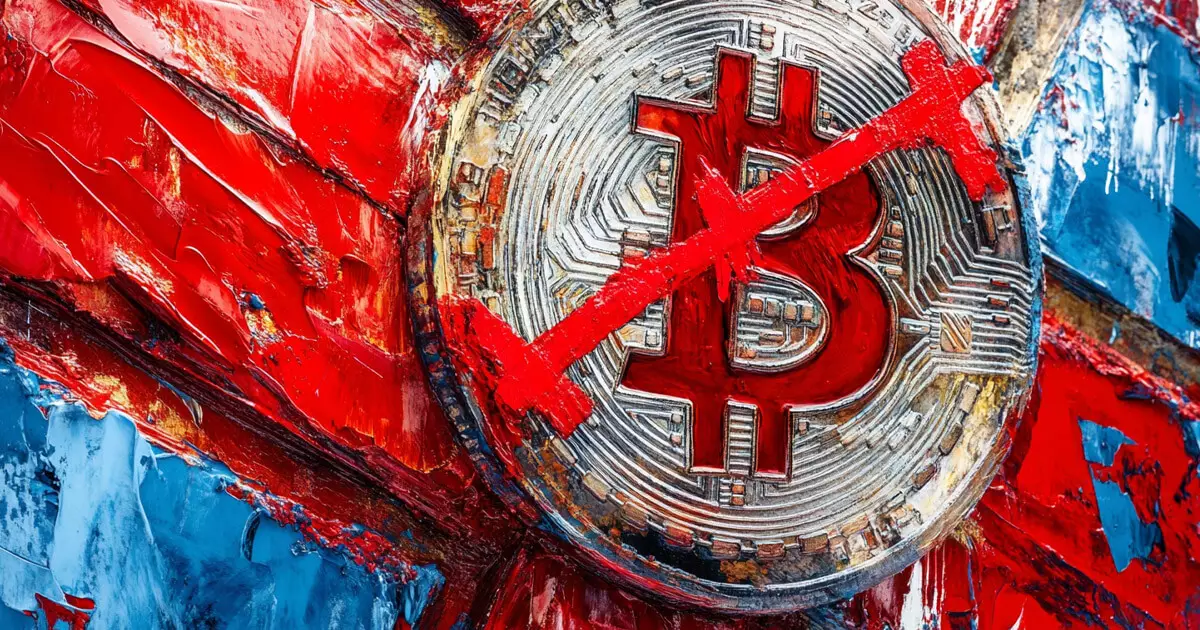Banco of Investimentos Globais (BiG) stands as one of the leading financial institutions in Portugal, boasting an impressive asset management portfolio valued at nearly €7 billion in 2023, which is approximately $7.2 billion. Recently, BiG made headlines by instituting a restriction on fiat transfers to cryptocurrency platforms. This move sparked considerable discussion within the financial and crypto communities, raising concerns about the balance between regulations and the emergent world of digital assets.
The rationale behind BiG’s decision stems from compliance with directives issued by influential entities such as the European Central Bank (ECB), European Banking Authority (EBA), and the Bank of Portugal. These organizations have expressed concerns regarding the risks associated with digital assets, emphasizing the need to prevent money laundering and fund terrorism. Notably, this proactive stance reflects an intensifying scrutiny on cryptocurrencies, as regulators worldwide grapple with how to integrate these assets into existing financial frameworks while safeguarding economic stability.
Interestingly, it appears that BiG’s restrictions are not universally echoed across the Portuguese banking sector. Reports suggest that Caixa Geral de Depósitos, another major bank, continues to facilitate fiat transfers to crypto platforms without hindrance. This divergence within national banking practices indicates varying interpretations of regulatory expectations and can create confusion among consumers and investors in the crypto space.
The reaction from the cryptocurrency community, particularly from figures like Delphi Labs co-founder José Maria Macedo, has been highly critical of BiG’s actions. Macedo articulated a sentiment that resonates with many crypto advocates, stating, “Crypto is inevitable, banks are dead,” suggesting that traditional financial institutions may ultimately be rendered obsolete due to the rise of decentralized finance (DeFi). This sentiment underscores a broader trend—growing discontent with banking practices perceived as restrictive and a desire among many individuals to move their wealth onto blockchain networks.
Macedo’s remarks indicate a fundamental belief within the crypto community that centralized control over financial transactions is an outdated practice. The blocking of funds could potentially accelerate a migration towards decentralized systems, wherein individuals feel empowered to control their finances without intermediary obstacles.
The regulatory guidelines that likely informed BiG’s decision are notably influenced by perspectives within the ECB itself. ECB economist Jürgen Schaaf’s prior denunciations of Bitcoin—characterizing it as environmentally damaging and volatile—have set a tone of skepticism around the cryptocurrency. His assertion that the introduction of spot exchange-traded funds (ETFs) in the US wouldn’t legitimize Bitcoin adds another layer to the debate surrounding cryptocurrencies. While some policymakers advocate for the incorporation of digital assets into Europe’s economic structure, others maintain strict regulatory stances that could stifle innovation.
In light of BiG’s recent policy changes, the Portuguese banking landscape is at a crossroads. The friction between regulatory compliance and the burgeoning crypto market presents both challenges and opportunities. As traditional financial institutions navigate these turbulent waters, the call for a more balanced approach that embraces innovation while ensuring consumer protection becomes paramount. The juxtaposition of regulatory caution against the tide of digital asset adoption will undoubtedly shape the future of finance in Portugal and beyond.


Leave a Reply